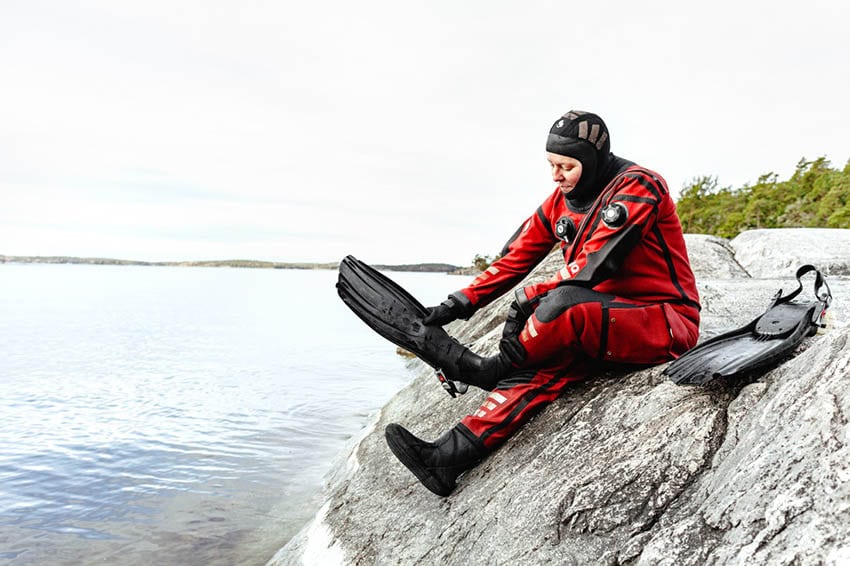Between 2017 and 2022, the Swedish Higher Education Authority, UKÄ, assessed 153 doctoral programmes in various subject areas at 27 Swedish higher education institutions. Of the programmes reviewed, 114 were judged to be of an acceptable standard, while UKÄ questioned the quality of the remaining 39.
Following the UKÄ review, each institution had one year to report how it intended to correct the issues identified by the authority. The final UKÄ report shows that 25 of the 39 programmes that received complaints were updated successfully. In 13 cases, the institutions chose instead to discontinue the programmes.
Degree-awarding powers withdrawn
In one case, a doctoral programme in economics at Södertörn University, the right to award degree qualifications was withdrawn. UKÄ determined that Södertörn University was not able to run the programme alone, but needed to collaborate with other higher education institutions to an unacceptably large extent. According to UKÄ’s follow-up assessment, which Universitetsläraren has read, that collaboration had not been ”secured in the long term” and thus not sufficiently to be able to offer course programmes and compulsory courses in the long term.
”Since there are still shortcomings with regard to the programme in question, the university should no longer be allowed to issue licentiate and doctoral degrees in economics,” UKÄ wrote in its decision.
Kristina Sundberg, one of three inspectors who wrote the UKÄ review report, emphasises that most of the doctoral programmes that were included in the review were deemed to be of high quality. She says she cannot comment on the percentage of postgraduate courses that were closed down.
“No, our focus in these reviews is that the doctoral candidates must be able to achieve their qualification goals. If the programme does not provide those opportunities and if the assessment group performing the review reaches the same conclusion in its report, I think that doctoral candidates simply cannot do that. And then it is good that the higher education institution no longer offers that programme.”
Achieve both breadth and depth
The fact that some programmes have their degree-awarding powers called into question can, for example, in general terms be because they are small educational environments and so it is difficult for the doctoral candidates to achieve both breadth and depth of knowledge, Sundberg says.
In order to evaluate doctoral programmes, UKÄ puts together different assessment groups, which consist of subject representatives as well as representatives from working life and students. After the group has examined a programme, a report is written. UKÄ then conducts interviews with teachers, researchers and the management.
The assessment of the programmes looks at four areas. Firstly, the prerequisites of the programmes are examined, for example the number of supervisors and teachers and their respective competences.
Secondly, UKÄ assesses the design of the programmes, including whether the doctoral candidates’ knowledge and understanding after graduating from the programme is sufficiently broad. The assessment group also looks at how and whether the programme follows up content and examination systematically.
From the doctoral candidates’ perspective
The third area is the doctoral candidate perspective, where UKÄ looks at whether the doctoral candidates are allowed to contribute to the development of the doctoral programmes and what their physical and psychosocial work environment looks like.
Finally, the authority assesses the programmes from a working life and public engagement perspective, including whether each programme develops the doctoral candidate’s ability to – as UKÄ expresses it in its report – ”meet the changes in working life”.
“What we want to emphasise in this report is that the doctoral candidates work in complex environments, where they have different roles,” says Sundberg. “They can be employees, seen as colleagues , while at the same time they are students. They have very high demands placed on them, and sometimes there are both conflicts between goals and conflicts between roles. Even if many of the programmes are of high quality, we still have to continue to monitor the educational environments of doctoral candidates. Because they are unique.”
Of the 153 doctoral programmes reviewed by UKÄ, 44 were within the field of natural sciences, 18 within technology, 48 within social sciences, 42 within humanities and one within agricultural science. According to UKÄ’s selection principles, at least one doctoral programme at each higher education institution is to be evaluated.
















